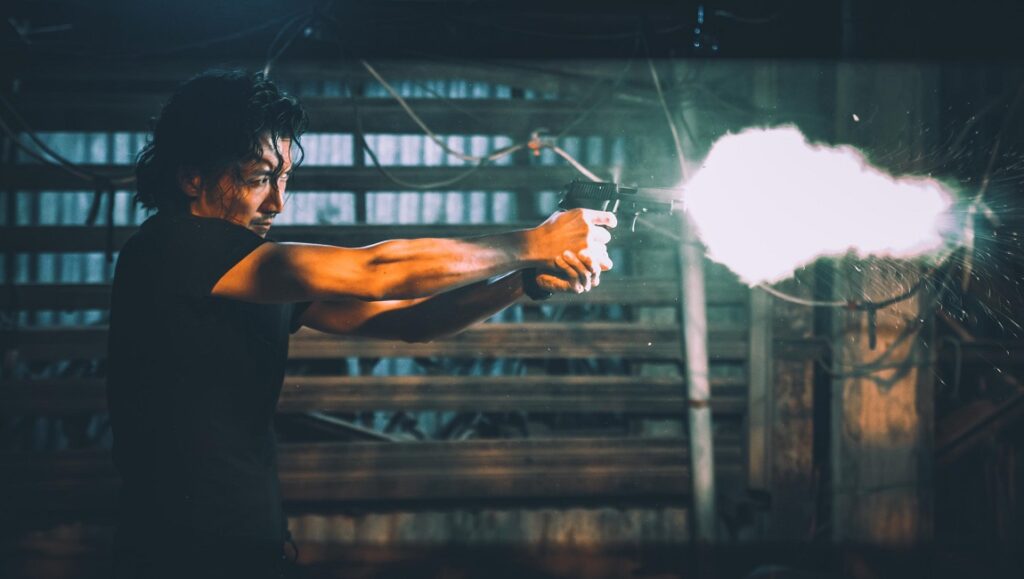Raging Fire is fairly staid as a cop-film actioner, but it proves that Donnie Yen, even as he approaches 60, can still deliver.
When credits roll on Raging Fire they are accompanied by behind-the-scenes footage of Benny Chan at work directing the film. It’s a warm tribute to the late director, who died of cancer shortly after filming this, his last movie. That he was gone before post-production began means we’ll never know if the edit is representative of his vision, but it at least appears that no attempts were made to posthumously turn the film into a leaden swan song in a misguided attempt to celebrate the filmmaker. Instead, Raging Fire is just a Benny Chan action movie: a mixed bag of police tropes and martial arts action starring Donnie Yen and Nicholas Tse, less a capstone to a career than a continuation of what Chan did for thirty years.
Veteran cop Bong Cheung (Yen) sets out on a revenge mission after many of his colleagues are slaughtered walking into a trap set by Ngo (Tse), Bong’s former protégé, who was sent to prison for manslaughter on account of his mentor’s testimony and the backstabbing of department brass. There are a few twists thrown in along the way and a few proficient suspenseful sequences scattered about all the action, but most of the movie is concerned with unraveling the relationship between Bong and Ngo, using flashbacks to their days as partners to not just set up their collision course but also lightly comment on police bureaucracy and institutional corruption. It’s reasonably compelling stuff, with good performances from both its leads and its bench of recognizable Hong Kong actors, like Simon Yam. But it’s nothing you haven’t seen before in Hong Kong cinema or the West and, at two hours, it can’t help but drag from time to time.
With its warmed-over plot and familiar cop movie themes, Raging Fire is mostly an excuse to watch Donnie Yen do his thing, a promise on which it delivers decently if unexceptionally. Over a career spanning the last forty years, Yen has built up a catalogue of great fight scenes, and though it’s filled with action, no scene in this film is destined to shake up the canon of the best. A few genuinely inspired moments, like Yen wrapping a Kevlar vest around his arm to fend off a horde armed with machetes, or a car chase that finds him driving a minivan while fist fighting a motorcyclist out the window, lend their spark to sequences that are otherwise routine — cleanly directed but mixed and sometimes drab in their staging. A late-film shootout, for instance, dully lifts from Heat’s famous heist and only briefly comes to life when Yen makes clever use of the bumper to bumper traffic. Worst of all Chan sometimes leans too far into the ridiculous, as in the two CGI-assisted stunts he stages in the minivan chase, which would not be out of place in a Fast & Furious sequel and distract from this film’s more grounded, serious tone. The final one-on-one is good all-around though, and a nice reminder that its star, slower now that he’s nearly 60, can still deliver.
Originally published as part of NYAFF 2021 — Dispatch 1.


Comments are closed.